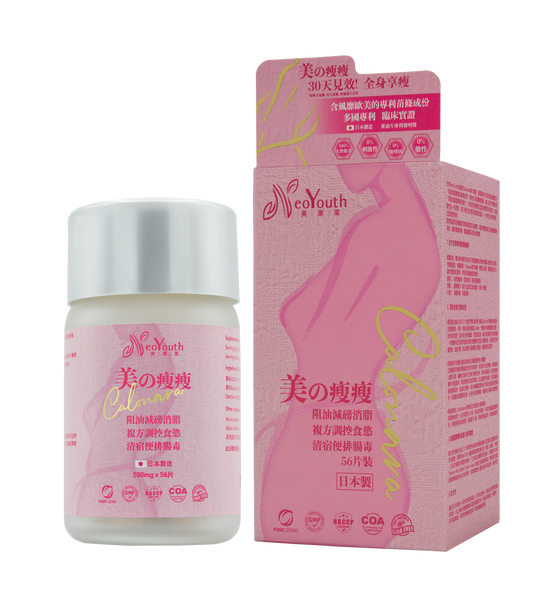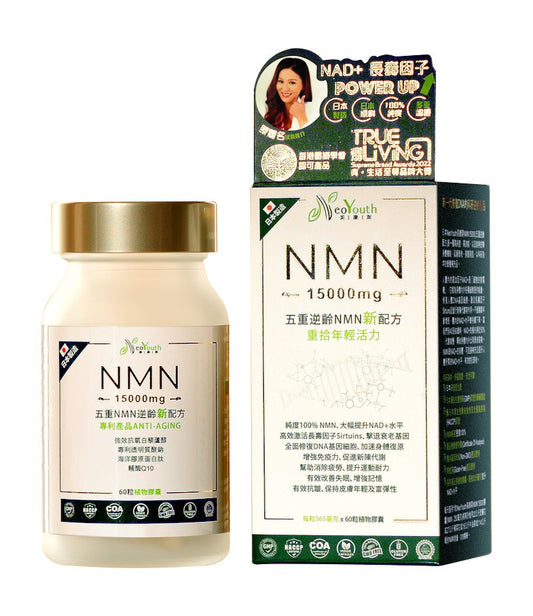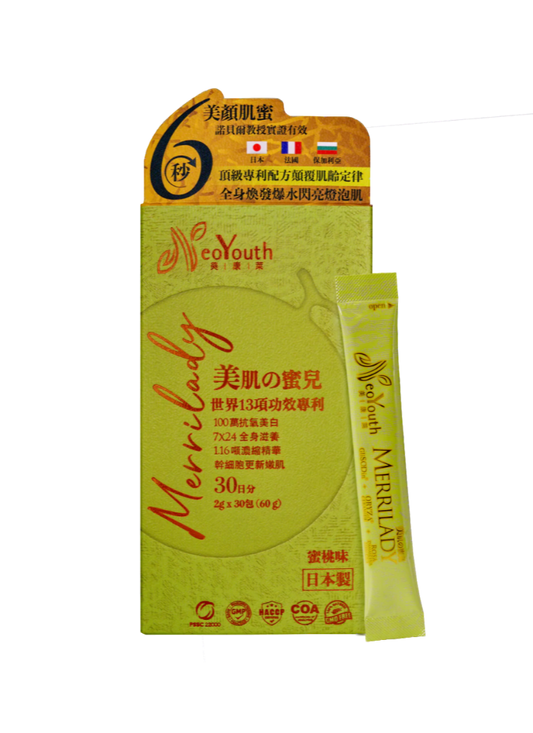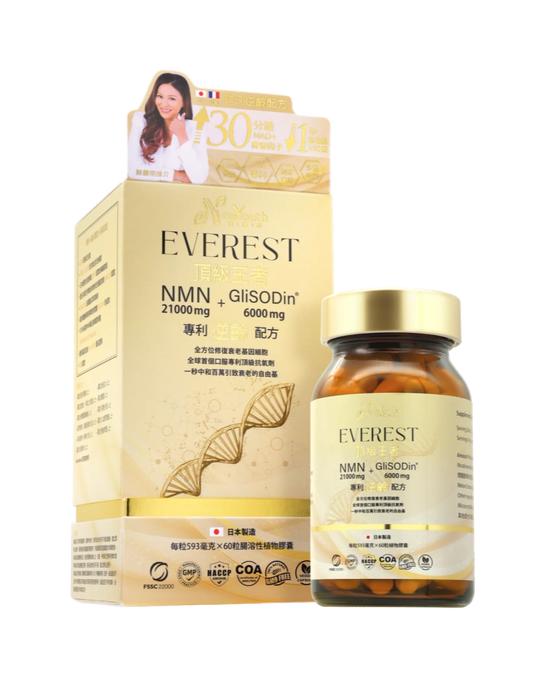Skin is the largest organ in the human body. As we age, its self-repair ability and metabolic rate slow down, making it more prone to aging and oxidation. In recent years, there has been widespread research suggesting that NMN may help repair skin cells, boost metabolism, and improve skin health.
Q1. How can slow metabolism worsen skin condition?
- Decreased cell repair and regeneration capacity: Slow metabolism may slow down the cell repair and regeneration process, which may result in skin tissue damage not being repaired quickly, thus affecting the health and appearance of the skin.
- Loss of collagen and elastin fibers: Decreased metabolism can lead to an accelerated loss of collagen and elastin fibers, which are essential for the structure and elasticity of the skin. As collagen and elastin fibers are lost, the skin may become loose, inelastic, and wrinkled.
- Impaired fat metabolism: Slow metabolism can affect fat metabolism, causing fat to accumulate in skin tissue. This can lead to increased subcutaneous fat, forming bulges of adipose tissue.
In summary, a slow metabolism may lead to a decrease in the skin cells' ability to repair and regenerate, an accelerated loss of collagen and elastin fibers, and impaired fat metabolism, which in turn leads to a decline in skin quality and aging.
Q2. How does NMN boost metabolism, thereby improving skin?
NMN, a widely studied substance, is believed to have potential benefits for metabolism and skin health. Below are the mechanisms by which NMN boosts metabolism and thus improves skin:
- Increased Energy Production: NMN is metabolized into NAD+ within cells, a key carrier molecule in energy metabolism. NAD+ participates in many important energy production processes in cells, including cellular respiration and oxidative phosphorylation. By providing an adequate supply of NAD+, NMN may help increase cellular energy production, thereby enhancing metabolic rates.
- Promoting Cell Repair and Regeneration: NAD+ plays a crucial role in cell repair and regeneration. By increasing NAD+ levels, NMN may help promote cell repair and regeneration, accelerating the recovery and renewal of skin tissue.
- Antioxidant effects: NMN is believed to possess antioxidant properties, which can reduce cell damage caused by oxidative stress. Oxidative stress is caused by the excessive production of free radicals and oxidants, which can lead to cell damage and aging. By providing antioxidant protection, NMN may help maintain the health and function of skin cells.
- Regulation of gene expression: NMN may regulate multiple metabolism-related pathways by affecting intracellular enzyme activity and gene expression. This may include genes regulating energy metabolism and lipid metabolism, thereby affecting the function and appearance of skin cells.




